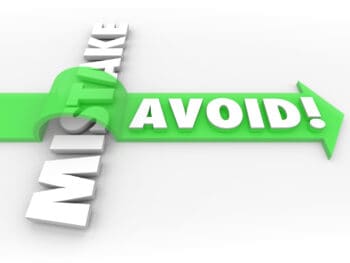
Unfair claim practices are any action taken by the self-insured employer that is unfair, discriminatory, deceptive, or misrepresent the facts. Any inappropriate conduct by the self-insured employer can land the employer in legal trouble. Also, if a particularly unfair practice is shown to occur with any frequency, the insurance regulatory authority will review their approval of your self-insurance status.
Click Link to Access Free PDF Download
“13 Research Studies to Prove Value of Return-to-Work Program & Gain Stakeholder Buy-In”
Common Mistakes That Get Employers In Trouble
While there is a wide array of inappropriate actions a self-insured employer can get into trouble for, we will discuss only the most common mistakes an employer might make that would be classified as an unfair claims practice.
- Delaying the processing of a claim – the self-insured employer cannot refuse to process the Employer’s First Report of Injury form or delay sending the required forms to the employee or the required forms to the state agency that oversees workers’ compensation.
- Delaying the necessary investigation of the claim – most states require the claims office to accept or deny the claim within a specific period of time. If the claim is not accepted or denied timely, in most states the lack of a timely decision is acceptance of the claim. Worst yet, if the employer does not investigate the claim within the frame specified by the state, the employee’s version of the claim facts is accepted without any rebuttal by the employer.
- Misrepresentation of coverage – the self-insured employer is handling its own claims must provide the employee making an injury claim full information on available medical care and indemnity benefits, if indemnity benefits apply. For example: you cannot tell the employee there is a 30 day waiting period for indemnity benefits. Or, you cannot tell the employee that required medical services are not covered.
- Withholding payment of benefits – the self-insured employer who has accepted a claim, or has received an adverse ruling on a claim, cannot withhold payment of temporary total disability benefits or the payment of medical bills to coerce a quick settlement with the employee.
- Needless duplications – the self-insured employer cannot bombard the injured employee with extra or duplicate claim forms, or have the employee repeat medical procedures that were completed properly.
- Withholding an equitable settlement – if the workers’ compensation regulatory authority has ruled that workers’ compensation coverage must be provided, the employer cannot refuse to make a good faith effort to reach a prompt and fair settlement of the claim, regardless of how the employer views the validity of the claim.
- Appealing all awards – the self-insured employer cannot make it a standard business practice to appeal all awards of workers’ compensation coverage in an effort to compel employees to settle for less than they would otherwise be entitled to.
- Putting forth an unreasonable settlement offer – the employer cannot offer to settle a workers’ compensation claim for permanent partial disability or permanent total disability for less than the requirements of the state statutes. The settlement offer must be based on the requirements of the law.
Unfair Claims Practices Acts Designed to Protect Employer & Employee
The unfair claims practices acts are not designed to compel a self-insured employer to pay fraudulent workers’ compensation claims. The unfair claims practices act statutes are structured to compel the self-insured employer to investigate thoroughly all claims. These statutes mandate the employer to either accept an employee’s work comp claim or to provide the reasons and the documentation as to why the work comp claim is not owed.
When the self-insured employer is confronted with the questionable claim, the employer should investigate the claim completely gathering all information from the employee, the co-workers, witnesses, medical providers, past employers, past medical providers, state agencies, the Insurance Services Office, and all other sources. A decision on the claim should be made timely, and the decision should be conveyed to the employee and the state agency.
By acting in an unbiased and factual manner, the self-insured employer will avoid any violation of the unfair claim settlement practices acts.

Author Rebecca Shafer, JD, President of Amaxx Risk Solutions, Inc. is a national expert in the field of workers compensation. She is a writer, speaker, and publisher. Her expertise is working with employers to reduce workers compensation costs, and her clients include airlines, healthcare, printing/publishing, pharmaceuticals, retail, hospitality, and manufacturing. She is the co-author of the #1 selling book on cost containment, Workers Compensation Management Program: Reduce Costs 20% to 50%. Contact:.
Contact: RShafer@ReduceYourWorkersComp.com.
Workers’ Comp Roundup Blog: https://blog.reduceyourworkerscomp.com/
©2019 Amaxx LLC. All rights reserved under International Copyright Law.
Do not use this information without independent verification. All state laws vary. You should consult with your insurance broker, attorney, or qualified professional.






















